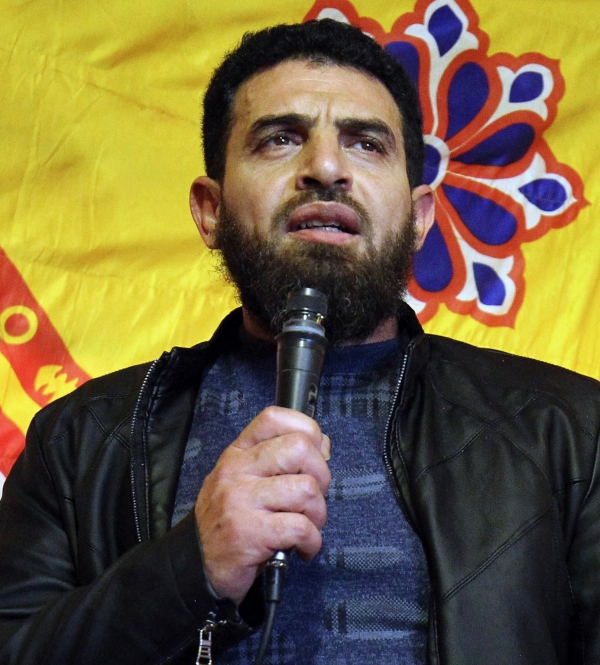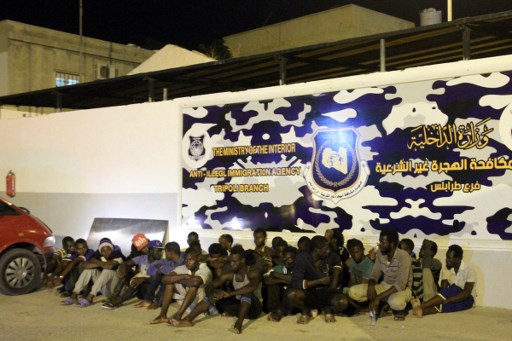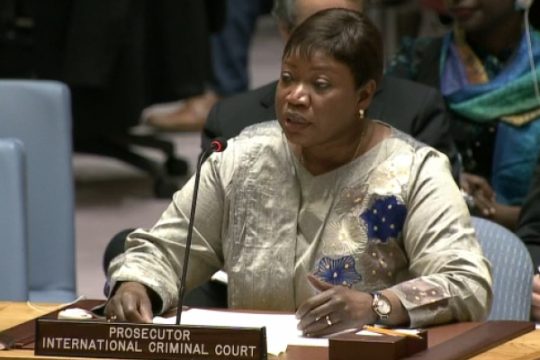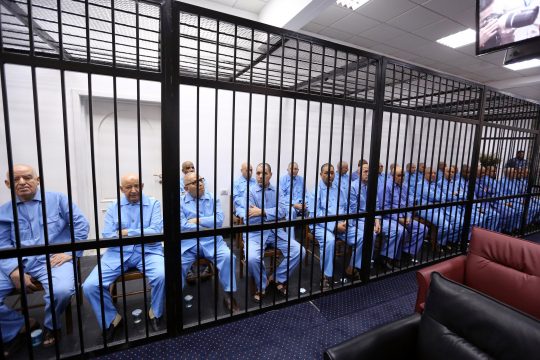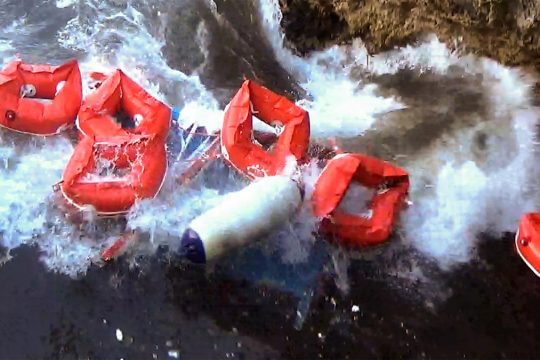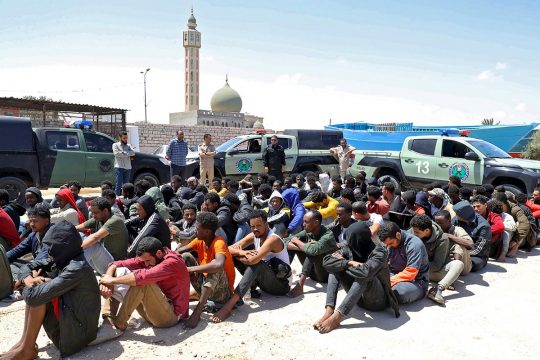On Tuesday August 15, the International Criminal Court (ICC) issued a new arrest warrant for crimes committed in Libya. Mahmoud al- Werfalli, an ally of Libyan strongman General Khalifa Haftar, is suspected of war crimes for murders committed in 2016 and 2017 in Benghazi region, northeast Libya.
The alleged crimes were committed between 2016 and July 2017. Al-Werfalli is said to have murdered and ordered the murders of 33 prisoners who were civilians and disarmed combatants. ICC Prosecutor Fatou Bensouda deemed that he should be brought to justice for “his direct participation in seven separate rounds of executions, in which a total of 33 people were murdered in cold blood”. The arrest warrant cites several videos, filmed and posted on Internet by troops of Major Al-Werfalli, which show him executing prisoners with a bullet to the head or giving the order to shoot. ICC judges said there was “no information in the evidence which shows that they have been afforded a trial by a legitimate court".
After the death of Muammar Gaddafi in October 2011, Al-Werfalli decided to join the Al-Saiqa brigade, a former elite unit of the Gaddafi regime which broke ranks at the beginning of the rebellion in February 2011. Since 2014, these special forces have been allied to the Libyan National Army (LNA) of General Khalifa Haftar, a leading combatant against Islamist and Jihadist groups. After three years of fighting, General Haftar’s forces took back Benghazi in July, allowing him to confirm his domination over the east of the country. Haftar, who is supported by Egypt and the United Arab Emirates, is considered a key player in the West’s attempts to solve the Libyan crisis, and this new victory puts him in a position of strength in negotiations with Libyan Prime Minister Fayez Al-Sarraj. On July 25, 2017, France organized an inter-Libyan conference at the château de La Celle, in the presence of President Emmanuel Macron and Foreign Minister Jean-Yves Le Drian. The meeting ended with a ceasefire agreement between Fayez el-Sarraj and General Haftar.
Al-Werfalli promoted
In mid-July the office of the UN High Commissioner for Human Rights (HCHR) complained to Haftar about abuses committed by Al-Werfalli, urging his suspension and the opening of an investigation. According to the online newspaper Libya Herald, Al-Werfalli had wanted to resign in May but was on promoted to Major by the commander of the Al Saiqa brigade, Wanis Bukhmada. Shortly after the UN denunciations in July, Al-Werfalli ordered the execution of 18 more prisoners. Kneeling in orange jumpsuits and black hoods with their hands tied behind their backs, the men were lined up in four rows and then executed on Major Al-Werfalli’s orders. Two other prisoners were executed the same day, as he gave orders. “As he does so, two hooded men in camouflage, carrying firearms, walk forward, raise their weapons and shoot at the two kneeling persons, who fall on the ground,” says the arrest warrant, describing the video. Another one shows Al-Werfalli shooting a victim, and saying: “You have been misled by Satan”. The Prosecutor has not yet identified all the victims, but two men imprisoned in a cage before their execution are said to be members of the Shura Council of Benghazi Revolutionaries and of Ansar Al-Charia, which is close to Al-Qaeda. The Court deemed these crimes “exceptionally cruel, dehumanizing and degrading". According to the judges, these acts rise “above the level of isolated and sporadic acts of violence".
Prevention
Shortly after the arrest warrant was announced, Prosecutor Fatou Bensouda called for the immediate arrest of Mahmoud al-Werfalli, who, according to the judges, "is likely to continue to carry out crimes of similar gravity in the near future". Bensouda urged the Libyan authorities to arrest him immediately “so that the judges of the Court can independently and impartially assess the evidence to determine his guilt or innocence”. In the past, Libya has refused to transfer suspects to The Hague, saying that its own courts are able to try them. At the time, the Prosecutor’s office supported this position in the case of Abdullah El Senoussi. This former intelligence chief of Gaddafi was sentenced to death by Tripoli, after a trial fraught with irregularities and denounced by UN observers.
Fatou Bensouda also called on the international community to “cooperate and assist Libya, as needed, to ensure the arrest and surrender of Mr al-Werfalli to the ICC without delay”. Her message is also addressed to the UN Security Council, which referred crimes committed in Libya to the ICC in February 2011. In confirming the Prosecutor’s request for an arrest warrant against Mahmoud al-Werfalli, ICC judges stressed that the crimes committed in Benghazi in 2016 and 2017 are linked to the conflict that was referred to the Court by the UN Security Council. According to them, the Al-Saiqa brigade has been involved from the start in the revolution against Gaddafi. This can be seen as a signal to the Prosecutor that her investigations must remain linked to crimes at the root of the Libyan crisis, whereas in May this year Bensouda evoked the possibility of prosecuting perpetrators of crimes against migrants in Libya.



